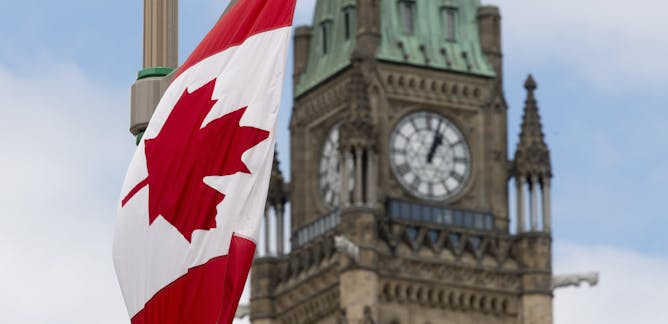
Articles on Economic policy
Displaying 1 - 20 of 68 articles

Drawing on insights from their recent book, two academics shed light on why Canada’s anemic growth should be a cause for concern.

Are Keir Starmer and Rachel Reeves focusing on the same criteria for economic competence as Britain’s voters?

He faces strong headwinds at home and abroad as his third term as president gets underway.

Since the 2008 financial crisis, politicians from a range of parties and countries have reported losing respect for experts.

Deliberately crafting economic relationships with countries that share similar political and social values with Canada has emerged as a tool to address current geopolitical issues.

Requiring low-paid, part-time workers to increase their hours or take on multiple jobs can have adverse physical and mental health impacts.

The 2022 federal budget implements long needed regulations to support the charitable sector.

A more devolved approach to national economic policy could build on the strengths of every region.

In this moment of crisis, South Africa urgently needs decisive action. But all too often South Africans of all political stripes seem trapped in stale discourses.

The $1.9 trillion package gets a lot of stuff right, but the direct payments are not among them, argue two economists.

Two economists argue that people who believe the economy will turn around quickly have more incentive to quarantine.

With unemployment soaring due to COVID-19, why is Jacinda Ardern’s centre-left government significantly less generous towards beneficiaries than Scott Morrison’s centre-right government in Australia?

Previous shocks show that smart spending and building public confidence are crucial to the speed and shape of economic recovery.

The food aid program helps low-income families put food on the table and injects money straight into struggling local economies. It will be critical throughout the crisis the coronavirus is stoking.

We need a frank public conversation about the full economic costs versus benefits of social distancing.

Randomised trials in development have attracted criticiism over ethical issues and questions about being effective for policy.

Argentina has voted for change. Alberto Fernández, a 60-year-old lawyer, defeated President Mauricio Macri with a campaign emphasizing economic recovery, social inclusion and national unity.

The debate about the mandate of the South African Reserve Bank must be located within a clearly articulated political vision and social compact on the kind of society South Africans aspire to.

When an elected leader turns autocratic, the economy tends to suffer. That’s because, in a functioning democracy, economic policy is made jointly, with lawmakers playing a key role.

Morals and the markets can mix after all.
